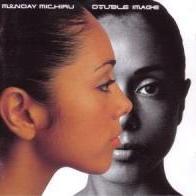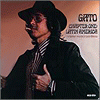Search the Community
Showing results for 'Patty+Waters'.
-
Thank you, JAW. Conn, almost nobody calls me "Patty". Thank you for your good wishes. Rachel, my dear. There are so few ladies on the board that it's nice when one pokes their head up. Thanks for reminding me that there are some of us here. PhillyQ, You're sweet. Thank you for your kind words.
-
Happy Birthday Patricia!
connoisseur series500 replied to 7/4's topic in Miscellaneous - Non-Political
Happy Birthday Patty. -
"Citizen Kane William Randolph Hearst Patty Hearst" Patty Waters Ethel Waters Muddy Waters
-
Citizen Kane William Randolph Hearst Patty Hearst
-
Actor John Spencer passes
Christiern replied to Free For All's topic in Miscellaneous - Non-Political
He was, IMO, one of the best in West Wing's stellar cast.--CA 'West Wing' actor John Spencer dies at 58 Actor John Spencer, from the television series "The West Wing," gives a thumbs up as he arrives for the 59th Annual Golden Globe Awards in Beverly Hills, Calif., in this Jan. 20, 2002, file photo. Spencer, 58, died of a heart attack Friday, Dec. 15, 2005, at a Los Angeles hospital, his publicist Ron Hofmann said. (AP Photo/Kevork Djansezian) By LYNN ELBER AP Television Writer | December 16, 2005 LOS ANGELES --John Spencer, who played a tough and dedicated politico on "The West Wing" who survived a serious illness to run for vice president, died of a heart attack Friday. He was 58. Spencer died after being admitted to a Los Angeles hospital during the night, said his publicist, Ron Hofmann. He would have been 59 on Tuesday. He was "one of those rare combinations of divinely gifted and incredibly generous," said actor Richard Schiff, who played Toby Ziegler on the NBC series. "There are very few personal treasures that you put in your knapsack to carry with you for the rest of your life, and he's one of those," Schiff said. He said Spencer had been struggling with health issues but seemed to have rebounded. Spencer played Leo McGarry, the savvy and powerful chief of staff to President Josiah "Jed" Bartlet (Martin Sheen). In a sad parallel to life, Spencer's character suffered a heart attack that forced him to give up his White House job. McGarry recovered and was picked as a running mate for Democratic presidential contender Matt Santos, played by Jimmy Smits; the campaign against Republican Arnold Vinick (Alan Alda) has been a central theme for the drama this season. "John was an uncommonly good man, an exceptional role model and a brilliant actor," said Aaron Sorkin, who created the series, and Tommy Schlamme, one of the original executive producers, in a joint statement. "We feel privileged to have known him and worked with him. He'll be missed and remembered every day by his many, many friends," they said. Actress Allison Janney, C.J. Cregg on the series, described Spencer as a consummate professional actor. "Everyone adored him," she said. NBC and producer Warner Bros. Television praised Spencer's talent but did not address how his death would affect the Emmy Award-winning series, in production on its seventh season. Spencer, who also starred on "L.A. Law" as attorney Tommy Mullaney, received an Emmy Award for his performance on "The West Wing" in 2002 and was nominated four other times for the series. The actor, whose world-weary countenance was perfect for the role of McGarry, mirrored his character in several ways: Both were recovering alcoholics and both, Spencer once said, were driven. "Like Leo, I've always been a workaholic, too," he told The Associated Press in a 2000 interview. "Through good times and bad, acting has been my escape, my joy, my nourishment. The drug for me, even better than alcohol, was acting." Spencer grew up in Paterson, N.J., the son of blue-collar parents. With his enrollment at the Professional Children's School in Manhattan at age 16, he was sharing classes with the likes of Liza Minnelli and budding violinist Pinchas Zukerman. As a teenager, he landed a recurring role on "The Patty Duke Show" as the boyfriend of English twin Cathy. Stage and film work followed. Then his big break: playing Harrison Ford's detective sidekick in the 1990 courtroom thriller "Presumed Innocent." That role led to his hiring for the final four years of "L.A. Law." Spencer played a streetwise lawyer on the David E. Kelley drama that was in sharp contrast to the show's otherwise glamorous cast and setting. After attending the Manhattan performing arts school, Spencer studied at Fairleigh Dickenson University. He then began working on stage in New York and in regional theaters, in plays including David Mamet's "Lakeboat" and Tennessee Williams' "The Glass Menagerie." Spencer won an Obie Award for the 1981 off-Broadway production of "Still Life," about a Vietnam veteran, and received a Drama Desk nomination for "The Day Room." His made his feature film debut with a small role in "War Games," which was followed by roles in "Sea of Love" and "Black Rain." Spencer said his work in "Presumed Innocent" represented a "watershed role." In recent years, he worked both in studio and independent films, including "The Rock," "The Negotiator," "Albino Alligator," "Lesser Prophets" and "Cold Heart." Spencer, an only child, is survived by "cousins, aunts, uncles, and wonderful friends," Hofmann said. -
I've always enjoyed his performances, going back to L.A. Law and beyond. He was great on West Wing- they will sorely miss him. LOS ANGELES (AP) — John Spencer, who played a dedicated politico on The West Wing who survived a serious illness to run for vice-president, died of a heart attack today, his publicist said. Spencer, 58, died at a Los Angeles hospital, said publicist Ron Hofmann. He would have been 59 next week. Spencer played Leo McGarry, the chief of staff to President Jeb Bartlet (Martin Sheen) through the first few seasons of the NBC series. In a sad parallel to life, his character suffered a heart attack that forced him to give up his White House job. The character recovered and was picked as a running mate for Democratic presidential contender Matt Santos, played by Jimmy Smits; the campaign has been a central theme this season for the drama. Spencer, who also starred on L.A. Law as attorney Tommy Mullaney, received an Emmy Award for his performance on The West Wing in 2002 and was nominated four other times for the drama. The actor mirrored his character in several ways: both were recovering alcoholics and both, Spencer once said, were driven. “Like Leo, I’ve always been a workaholic, too,” he told The Associated Press in a 2000 interview. “Through good times and bad, acting has been my escape, my joy, my nourishment. The drug for me, even better than alcohol, was acting.” Spencer grew up in Paterson, N.J., the son of blue-collar parents. With his enrolment at the Professional Children’s School in Manhattan, he was sharing classes with the likes of Liza Minnelli and budding violinist Pinchas Zukerman. As a teenager, Spencer landed a recurring role on The Patty Duke Show as the boyfriend of English twin Cathy. Stage and film work followed. Then his big break: playing Harrison Ford’s detective sidekick in the 1990 courtroom thriller Presumed Innocent. That role led to his hiring for the final four years of L.A. Law.
-
For December: Patty Waters complete recordings (liners by yours truly, in addition to Mr. Stollman) and Ayler Slugs' Saloon 2CD (with notes by John Kruth). Archival photos and clean mastering, both in my hands as I type.
-
Linus Van Pelt Pepprmint Patty Pig Pen Apolgies for the repetition. Computer difficulties, plus operator error...
-
Linus Van Pelt Peppermint Patty Pig Pen
-
Linus Van Pelt Peppermint Patty Pig Pen
-
Patty Waters Brian Wilson Duke Kahanamoku
-
Was this a one-off performance, or did they do a whole tour? ← Patty has a new one out called "Keep Your Distance" she probably recorded it with Iron Maiden in mind.
-
I like Patty Loveless and Iron Maiden. :rsmile:
-

Wow. even I've got an ebay listing!
Guest replied to Jazzmoose's topic in Offering and Looking For...
Questions for first time eBay seller mr._mooster: Your listing states: CD gently used, looks mint. Is the CD used? Also, is that a green mint, or a white mint, like in a York peppermint patty? Classic guitar jazz fusion. I don't understand. Is this classical music of jazz music? Can you explain? Your listing states: Available to United States Only. Will ship to United States. Question: Will you ship to Buffalo, New York? Will you use a box or padded envelope? If I win, can I pay you next week Friday? Do you accept PayPal? Do I pay you in American dollars? Can we maybe work out a trade? -

Corporate Mascots You'd Like to Drown
sidewinder replied to Brownian Motion's topic in Miscellaneous - Non-Political
I wonder why they skimped on just the one sausage 'patty' Thanks for showing this just before my breakfast.. -
Sonny Rollins at Hill Auditorium, Ann Arbor, October 1, 2005 Picking his spots Sonny Rollins appearance in Ann Arbor Saturday night unfurled in a careful arc of energy, one allowing the 75 year old musician to maintain the level of quality he’s exemplified in nearly 60 years of making music and still reach the heights of physicality his type of spontaneous expression demands. So while the the apex of Saturday’s performance came during a nearly fifteen minute tenor saxophone solo on “Don’t Stop the Carnival,” the kind of high energy, overflowing blowing he used to do for 50 minutes or longer, there was no diminution in the quality of the music. His ideas are abundant, his sound supreme and his wisdom profound. The “sides” of the arc up to and falling away from that apex were highlighted by Rollins’ musical interplay with guest drummer Al Foster, and long, long solos by electric guitarist Bobby Broom and the beautiful sounding trombonist Clifton Anderson. It was clear during the opening number “Biji” as his sidemen soloed at length on the lilting original, and the on second number “I Want To Talk About You" that at this stage of his career the tenor saxophone master is picking his spots: he conserves his energy by concentrating on sound, melodic interplay and leading his band before he’ll cut loose with tumultuous improvisations as in days of youth . And whenever he did step front and center his band fell into place with him -- they all rallied around his sound with a cohesion the members don’t always display on their own. With Bob Cranshaw playing minimal notes on electric bass and Al Foster playing in that free-funk bag people might recall from his time with Miles Davis the rhythm section took on a later electric Miles Davis flavor. Clifton Anderson’s lion share of solo space on “Biji” showed off his warm sound, flexibility (his ability to jump the same wide intervals as Rollins is prerequisite) and good melodic sense. In fact he may have even saved the boss on the bridge the first time through “I Want To Talk About You.” The choice of “I Want to Talk About You” with it’s ravishing melody, “They Say It’s Wonderful” with it’s tender romance, “A Nightingale Sang in Berkeley Square” with it’s minor tendency and “Why Was I Born?” featuring an unaccompanied, cadenza-like section amounted to a great program from which Rollins shared his sound and free melodic concept. Just hearing how Rollins plays heads is a lesson in possibilities: of playing off the time, tossing counter melodies against the trombone, improvising within the melody (and hanging the question, “Will this phrase ultimately fit?”) or joining in unison for a mellow blend with the trombone. Those great songs gave Rollins’ sound and melodic abilities a sparkling showcase. And though he didn’t step up to his full capacity until the third number, the direct interplay Rollins developed with Foster on “I Want to Talk About You” was highly musical. Rollins sticking to a riff and Foster improvising around it could have devolved into a game of musical patty cake -- too cute -- but didn’t. They made for an extended section of spontaneous interplay that is jazz at its musical best. Later in the concert when they revisited that direct interplay it was Foster who held the riffs and Rollins who improvised around them. Both of those moments were high points in the ensemble’s contribution. While staccato rhythms inspired by his calypso-based compositions have become the centerpiece of Rollins solo style, of his most inspired moments of improvisation, Saturday night’s concert showed, too, how at 75 bebop still lurks just beneath the surface of his music -- dig the quote of “Wee” or “Allen’s Alley” laying perfectly in the rhythmic motion of his “Don’t Stop the Carnival” solo, or other Birdlike asides that would flit by. The great swirls of free associated sound he created in the mid-60’s would race in at the conclusion of a knotty, complex high speed run, or bridge choruses; not to mention the “walking the bar” tradition of the tenor which he used to wake up the audience by pointing the bell right into the front row and blasting out dark basketball sized low notes. And quotes. Rollins even worked in “Santa Claus Is Coming To Town” at one moment. Knocked everyone out. The Hill Auditorium crowd was with him every step of the way from the opening standing ovation to greet him on stage to the end of the second encore which closed with an emotional quote of “St. Thomas.” Rollins signaled the entire concert was dedicated to the great tradition of jazz in Detroit, naming Tommy Flanagan and “the Jones brothers” specifically. Rollins at 75 has even more to say as a musician than Rollins at 25. And though his sound may have deepened with an oboe-like darkness it is still voluminous as ever and a captivating vehicle for the superior spontaneous melodic improviser he’s always been. Lazaro Vega is jazz director at Blue Lake Public Radio, www.bluelake.org
-
Less activity on this one than for Disc One, and a lot of the responses seemed somewhat "perplexed", especially those which came before yesterday. I figured on some of that, but, honestly, not as much as there ended up being. Oh well, the Disc is what it is, and I got a kick out of reading the responses that tried to figure out just exactly what it is. And to think that I decided to keep it mostly "inside"! Anyway, let's take it apart and see what's inside. I suspect that a few eyebrows will be raised along the way! TRACK ONE – “The Happy People” by The Cannonball Adderley Quintet From Capitol ST-11121 The Happy People (LP) Cannonball Adderley –as, Nat Adderley – coronet (not present on this selection), George Duke – el p, David T. Walker – g (not credited for this selection, but guitar is obviously audible), Walter Booker – b, Roy McCurdy – d, Airto Moreira – vcl/perc; Mayuto, Octavio, King Errison – perc. Flora Purim – “Special Vocals” (Recorded 1972) A lot of “if I didn’t know that this was Cannonball, I’d never have guessed” responses to this one, and that’s sort of the point (that and the absolutely fabulous, non-stop Brazilian groove). If you only know Cannonball up until the early-1960s or so, you don’t know the whole Cannonball. Yeah, a lot of those later Capitol sides had a lot of commercial trappings, often suffocatingly so. And a lot of them were edited so that Cannonball’s full solos ended up as condensed fragments. Yet, in spite theimpression those records might give you, his playing continued to grow and evolve. His tone got fatter, rawer, and less ripe, he continued to stretch harmonically (sometimes extremely so), and he was not at all averse to dipping into the “free” bag when it suited him. That’s a side of Cannonball that was best experienced live, but bits and pieces of it do survive on records (more explicitly on his post-Captiol Milestone sides, but even there, the “trappings” are usually in place). Point is – Cannonball’s records might have gone commercial, but his actual playing went just the opposite route. If you’re patient enough, there’s some really juicy and spicy meat to be found in even the most commercial sides, meat of a decidedly different variety than that of the Mercury/Riverside years. And he remained an immensely popular live attraction right up until the day he died. Just goes to show you that sometimes, what you think you’re getting and what you really are getting may not be the same thing! As for this album, it’s not yet been reissued (and, as brownie noted, it’s not even listed in the Lord discography). But this tune and the Milton Nascimento tune after it (which make up Side One) are perfectly fine, full of life and inspired playing by all (Airto was on fire in those days, and brought it with him everywhere he went, it seemed). Side Two drags down a bit, and gets pretty tedious (and non-Brazilian). So, is the glass half-full or half-empty? That’s one for everybody to decide for themselves... Anyway, from The Happy People, we go to the not-so-happy people: TRACK TWO – “Aftermath” by Oliver Nelson From Flying Dutchman FDS-116 - Black, Brown And Beautiful (LP) John Klemmer & John Gross – ts, others not credited (Recorded ca.1969) More from Oliver Nelson’s other masterpiece. This time something of a decidedly different bent (Side One of this album is “classical”: in nature, while Side Two is “jazz”. This cut is the opener to Side One). Nelson had extensive conservatory training in composition, and I’m told that he left behind a fairly sizable repertoire of “classical” works that were never performed in his lifetime (and ain’t that a drag – to create a body of work that you never get to hear, not even once...). If they show the range and adventurousness of this one (and the other three), they should be examined and performed immediately, I believe. Yeah, the main theme goes a little bit into FilmScore Land, but it’s enclosed on both sides by some pretty heavy shit that conveys quite well the image that Nelson had in mind. Says he: This, too, is Fire Music. Make no mistake about that. TRACK THREE – “Try A Little Tenderness” by David Sanborn From Elektra 61759-2 – Pearls (CD) David Sanborn –as, Kenny Barron – p, Christian McBride – b, Steve Gadd – d, Johnny Mandel – arr; others not credited (Recorded ca.1994-95) Syrupy or tasty? Again, that’s a matter of personal taste. But I’ve talked about Sanborn’s gift for melodic interpretation, and, specifically, this album often enough that I thought I’d include a cut for general review, since I KNOW that ain’t nobody gonna buy a Dave Sanborn album, just because! Besides, after the gut-wrenching turmoil of the previous cut, trying a little tenderness seemed to be the only option... If you like this cut, you will like most of the album from which it comes. There’s also a stunning cameo by Jimmy Scott on “For All We Know” (which almost made this test, but for the Patty Waters version of the same song which closes Disc One). There is a little bit of genuine schlock on Pearls, but for $6.99 - the price I paid for a used copy - I’d say it’s a safe bet. TRACK FOUR – “What A Little Moonlight Can Do” by Etta Jones From Muse MR 5175 – If You Could See Me Now (LP) Etta Jones – vcl, Houston Person – ts, Sonny Phillips – p, Sam Jones – b, Idris Muhammed – d (Recorded 6-21-1978) I think that this was Etta’s “comeback” album, her debut on Muse, the first in a long, happy, and successful relationship between her, Houston Person, & Bob Porter’ various labels. They had a formula, sure, and Etta’s voice gradually declined over the years, but the vibe was always real. Her spirit wouldn’t let it be otherwise. On this album, however, everybody is still fresh and nimble, and the groove is bumped up several huge notches by the archetypical work of the incomparable Sam Jones. Jesus Christ, can you swing any harder than he does here? And live to tell about it? We also get a rare opportunity to hear Sonny Phillips on piano, and that’s a treat (Nate heard a wrong note at the end of his solo, but as Joe G noted, it’s really just a #11, a rather nifty, Powell-ish finishing touch). And Idris hooks up w/Sam hand-in-glove (how could you not? And live to tell about it?). Etta just RIIIIIIIIIIIDES the beat, letting it (and Person’s totally simpatico obbligatos) free her up to do what she will with the tune. And what she does is swing the hell out of it! Heard live, a groove like this can transport you into another realm. Heard on record, it can come pretty close to doing the same thing. But who farted? Not once, but twice? At 1:02? And again right between 3:31 & 3:32? I’ve had this album for years, and never heard ‘em until listening to the CDR master of this disc. Thought that it might be some digital “addition”, but Holy Beano, they’re on the LP! Somebody farted on-mic. Twice. Everybody lived, but nobody told about it. Rudy, what the hell? Still, this is one GAS of a cut (pun unavoidable). Makes me happy to be alive. Gotta love that! TRACK FIVE – “Without A Song” by Freddie Hubbard From MPS/BASF MB 20726 – The Hub Of Hubbard (LP) Freddie Hubbard – tpt, Eddie Daniels – ts, Roland Hanna – p, Richard Davis – b, Louis Hayes –d (Recorded 12-9-1969) Richard Davis has an agenda of his own on this cut. What the hell it is, I haven’t a clue, but if it’s to create a potential for instability that forces everybody else to dig in and play as heatedly focused as they can, he succeeds. This and Ready For Freddie are by far and away my favorite Hubbard-as-leader sides (throw in a few others for Honorable Mention, though). He’s got his chops in high gear, but his creativity is right there alongside ‘em. Eddie Daniels (when/how/why did THIS cat turn into such a dipshit of a musician? Fuckin’ clarinets & tuxedos, sheesh....) is just wack on this one, digging into a DEEP Joe Henderson bag for his phraseology, but with a tone all his own (although I do hear a little Warne, now that some of y’all mention it...). He’s obviously trying to key off of Davis for his time, but that’s a good plan gone awry. So he just throws caution to the wind, and with marvelously warped results – quizzical phrase endings, riffs that try to get the time into one place, and just a lot of “Fuck it, I’ll see y’all when I see ya’” stuff.. A truly spontaneous, in=the-moment solo, I think.Roland Hanna’s got one foot on Jaki Byard and the other hand on a beer bottle (you gotta see the inner-jacket photo to get that one...). Louis Hayes, hell, he’s having to try to make sense out of whatever the hell Richard Davis’ time is up to, and he does it against all odds. Yet the whole thing burns from start to finish, and the MPS Reverb on the end just adds to the already well-established sense of buzzdom. A splendid mess, this one is. This whole album is one big, sloppy party where everybody plays their asses off, faults and all. I like that. A lot. I think the album’s been reissued on Japanese CD. It should be reissued in America. Ask Verve. TRACK SIX – “Requiem” by Oliver Nelson From Flying Dutchman FDS-116 - Black, Brown And Beautiful (LP) Pearl Kaufman & Oliver Nelson –p (Recorded ca.1969) Lots of Jarrett-guesses on this one. I don’t hear it myself, but that doesn’t mean anything. Don’t know which pianist is which, but based on Kaufman’s other appearance on the album, I’d say it’s Nelson playing the ostinato. I’ll let Oliver Nelson give his own commentary for this one: TRACK SEVEN – “I Hope In Time A Change Will Come” by Oliver Nelson From Flying Dutchman FDS-116 - Black, Brown And Beautiful (LP) Oliver Nelson –ss, others not credited, but likely including Bobby Bryant – tpt, Roger Kellaway – p, Chuck Domanico – b, John Guerin – d (Recorded ca.1969) The title, as Nelson says in his only commentary on this piece, “is self-explanatory”. As is the music. Heartbreakingly melancholic, it is, with those abortive forays into the major key that get pulled right back into the omnipresent minor, as well as with those deep interior dissonances at climatic moments. The bright, happy chord that ends it, is that a dream of things to come? A commercial quick-fix ending? Or is it the musical equivalent of the kind of smile your wife gives you when she’s got “that look” and you ask her what’s wrong, and she says “Nothing, dear. Everything is just fine...” ? I think the answer is pretty obvious. And that soprano...that too is self-explanatory... In my opinion, the unavailability of this album, in toto, on CD, here or anywhere, ever, is a most egregious wrong that needs to be righted as soon as possible. TRACK EIGHT – “Paucartambo” by Ray Anderson From Soul Note SN 1087 – Right Down Your Alley (CD) Ray Anderson – tbn/conga, Mark Helias – b, Gerry Hemingway – dr/steel drums (Recorded 2-3-1984) Until a change does indeed come, there’s always good, healthy escapist realism, and this cut has long been one of my favorites for exactly that. The timbre of the steel drums (and their less than precise pitch, exploited at times to glorious effect by, as Mike noted, Hemmingway’s varied attacks) creates a whole ‘nother world for me. Helias’ bass reminds me, in spirit, of Dolphy’s “Music Matador”, and Anderson plays very tasty, if not particularly complicated, conga. Then the interlude, and the instrument changes. The dream gets a little more concrete, but just a little. The bass/drum hookup on this one is TIGHT! Then they switch back, and the dream dissolves. But now, dammit, I wanna DANCE! TRACK NINE – “Db Waltz” by Weather Report From Columbia FC 39147 – Domino Theory (LP) Joe Zawinul – keyboards, Wayne Shorter – ts, Victor Bailey – el b, Omar Hakim – d, Jose Rossy – perc (Recorded ca. late-1983) Almost universally loathed until a last-minute surge of semi-support yesterday, it seems. Oh well, y’all are WRONG!!!! :g :g I mean, yeah, the ingredients (intentionally cheesy synth sounds, handclaps, band vocals, processed sax sound, arena-rock false endings replete with ultra-hyper drumming, and god-knows-what-else) are all “suspect” but the results are exquisite. Kinda like a good hot-link – if you dwell on what’s REALLY in it, it’ll make you barf; but if you just go ahead and eat the damn thing, it’ll groove ya for days. And this thing does groove me. Look, the tune itself is just plain wack once you take it apart and get past the surface ingredients – all the different sections (the segues between sections seem a little bit slack, though, and that’s the only criticism I have of this piece), the totally stretched harmonies, Wayne’s deadpan-but-oh-so-off-the-wall melodic statements and solos (a quality of his that goes back to his debut on Kelly Great, so, hey, what’s new?), the obviously (and obviously deliberate) over-the-top quality of it all, it all adds up to some master musicians having a blast. You gotta be free within yourself (and have a LOT of knowledge) to have this much fun with these kind of materials, to take the extra-mundane and bend it until it almost breaks, but doesn’t. This isn’t the self-congratulatory masturbatory chop-fest of the worst of fusion, this is just plain ol’ goofy-ass, First-Herd-of-the-Electronic-Age type FUN! Oh well, different strokes. Still love y’all! TRACK TEN – “Nothing Ever Changes My Love For You” by Roy Haynes From Mainstream MAL 313 – Hip Ensemble (CD burn of LP) Marvin Peterson –tpt, George Adams – ts, Carl Schroeder – el p, Teruo Nakamura –b, Roy Haynes- d, Lawrence Killian – conga (Recorded 1971) Now THIS one was just for laffs. I opened up Disc One with a “show-biz” type opener, and this one, redolent of headbands, long hair (Afro & Euro alike), tank-tops, tie-died pants, and sweat from playing hard at an outdoor concert (preferably in a park) as it is, just reeks of another type of show-biz – a young, not-fully-formed (Hannibal does NOT make all the changes!) group of young players led by an ever-hip, modishly (and expensively) dressed older drummer bringing a young-ish, highly stoned crowd to their roused feet by just HAMMERING THE HELL out of a once gentle and suave standard. Send’em home PUMPED, by God! SHOW BIZ BABY! :g Yet, it’s not without its charms. I dig Schroeder’s intro (and the segue from Zawinul to another, younger European electric keyboardist was intentional). Dig how he quotes “Four” without rhyme or reason (except that it comes four bars before the horns’ entry...). And his solo is nice and oblique in the then-current style. Whatever happened to him, anyway? And Adams is heard here in good early form, more than a little wild, but definitely playing. I miss that cat... The Haynes Mainstream albums are not “essential” or anything, but they are of historical interest and not without some intrinsic musical merit in spots. But this cut was included strictly for grins. I swear! TRACK ELEVEN – “The Beat Goes On” by Vanilla Fudge From Atco 33-237 – The Beat Goes On (LP) Mark Stein – org, Vince Martell – g, Tim Bogart – el b, Carmine Appice –d (Recorded 1968) What? Doesn’t everybody dig Vanilla Fudge?
-
That Patty Waters CD release was intriguing. I need to get back to it. Should have thought about her when listening to those final tracks of Disc 1
-
Y'all oretty much nailed this one, just as I had anticipated. The only ones that weren't specifically ID'ed were #s 10, 16, & 17. And I believe a few people said that #10 could be/might be/sounded like/whatever Oliver Nelson. Close enough. Still, it was a gas reading all the commentary, and partaking of some pretty different viewpoints of the same piece by different individuals. Made for some good reading. Thank you all! Hope the discs made for some equally good listening. And now, on with the show... TRACK ONE – “How High The Moon” by Brother Jack McDuff From Prestige 7642, I Got A Woman (LP) Jack McDuff – org, Harold Ousley & Red Holloway – ts, Pat Martino – g, Joe Dukes –d (Recorded 2-?-1966) As some of you noted, this one just screams “OPENER!!!!” It almost made my last BFT, and I wasn’t going to let it escape again. Ousley does indeed sound a little out of sorts, but nothing too drastic. Everybody else is hitting on all cylinders, and Dukes cracks me up with his show-biz antics. The whole things got a show-biz vibe to it, actually, and no musical integrity is sacrificed in the process. These are all players who were well-seasoned in the art of playing for people, not at them, and I for one find this kind of stuff impossible to resist. As also noted, the arrangement is really nifty, not getting in the way of the jamming one whit. It actually enhances the solos, setting them up and providing a subtle episodic flavor to what could have been just another run-through on some well-worn changes. I particularly love the ending, which is just a little bit wacky, and which also sets up the possibility of anything happening next. Even this... TRACK TWO – “Cheesecake” by Louis Armstrong From Pickwick 33 SPC 3229, Mame (LP) Louis Armstrong – tpt/vcl, Buster Bailey-cl, Tyree Glenn –tbn, Marty Napoleon – p, Alfred Di Lernia - banjo, Buddy Catlett –b, Danny Barcelona-d (Recorded April, 1966) Well! it seems that you either love it or you hate it. If you hate it, you probably find it to be a demeaning piece of tripe not worthy of such a great talent and cringe at the image of perhaps the most important musical figure of the 20th century mugging his way through it, banjo (BANJO!) and all. If you love it, you probably think it’s a piece of wacked out, borderline surrealistic nuttiness, possibly conceived of while Pops was enjoying a visit from Mr. Muggles. Put me down in the latter camp. I can’t listen to this without laughing out loud, and not in mockery, either. Kids love it, too, as evidenced by some of the responses. Mine do, too, and have for years! Yeah, it’s pretty lightweight in the grand scheme of things, but then again, a good smile is nothing to sneeze at! Check out Buster Bailey’s deadpan phrasing behind the vocals, and I think the intent becomes clear – these guys were playing it for grins all around, and not least of all their own! And speaking of grins... TRACK THREE – “Guajeo De Saxons” by Cachao Y Su Ritmo Caliente From Panart 2092 – Cuban Jam Sessions In Miniature “Descargas” (LP) Israel Lopez (Cachao) – b, Emilio Penalver – ts, Virgilio Lisama – bs, Guillermo Baretto – Bateria – bateria, Tata Guines – tumbadora, Rogelio “Yeyo” Iglesias – bongos, Gustavo Tamayo – guiro (Recorded 1957) I find this one totally irresistible, not just for feel, but for musical specifics. “Listen to my saxes, what rhythm they have” is the translated mantra of the corro, and what rhythm they have indeed! Not a jazz rhythm, either, but a distinctly Afro-Cuban one. Listen to how everything about their playing is so deeply inside the beat, and to how every aspect of their sound, from their attacks to their embellishments, springs from the notion of their horns being another ingredient in the delicious rhythmic stew.that’s being concocted around them. Especially interesting is how the traded fours between the horns begin, not on the first bar, as in jazz, but with a pickup into that bar. To me, this reveals a different concept of where “one” is than jazz has, and it’s a concept that is distinctly African. Much jazz has a subliminal African phraseology, but the Cuban cats invariably have it explicitly. Also, the Panart label was to pre-Castro Cuban music (of all varieties) of the 1950s what Blue Note was to Hard Bop during the same decade. For those interested in this type of music, I can’t recommend an exploration of that catalog strongly enough, especially the various “Cuban Jam Sessions”, of which this one led by Cachao is the most famous. If you’re having just one, this would be the one to have, but why have just one? Now, speaking of unique rhythmic sensibilities, tunes that begin with solo saxophone, and unusual trading of fours... TRACK FOUR – “Cosmet” by Sonny Rollins From Milestone M-9064, Nucleus(LP) Sonny Rollins – ts, Bennie Maupin – ts & saxello, Raul De Souza – tbn, David Amaro – g, Chuck Rainey – el b, Eddie Moore – d, Mtume – perc (Recorded September, 1975) This is one of the good’uns that got left off the Silver City set. Rollins is not in particularly heavy exploratory form here, but geez, is he into the tune physically (you should see the back-cover photo of him – his biceps are the size of my thighs, almost!). That tone occupies a room of its own! And his phrasing, especially when he’s playing those slightly displaced longer note is just so precise, so keen, everything happens at exactly the right microsecond. Listen to the little thing he does at 1:26 – talk about flying through the air with the greatest of ease! Plus, he speeds up and slows down his interior time at will, never losing the beat or killing the groove (if anything, his slight-of-ear enhances it). Then there’s all the little micro-moments where his time just dissolves completely into pure sonic energy. Truly, this is a master at work.And, it’s neat to compare the way that Sonny uses alternate fingerings on some notes for to create a more percussive effect with how Emilio Penalver uses the same device on the previous cut. It’s a “tenor thing” that has its roots in Lester Young, but the ways its been put to use over the years cover more ground than the wind. Sonny uses them to create a solo that has the tenor sounding not like a mere horn, but like a freakin’ force of nature! But he’s not the only one getting his groove on here – De Souza sounds fine, Maupin turns up the heat on saxello (with the rhythm section following him beautifully), and then the fours begin. What a glorious mess this turns into! Sonny comes in full-throtle, De Souza picks up the ends of Sonny’s lines for the beginning of his own, and Maupin, now on tenor decides to take it a little bit out, in a way very reminiscent of Sonny from the decade before. Things get a little tangled up, and everybody lets Maupin have a little spot of his own before Sonny most emphatically calls everybody home. It’s a totally groovy cut in my book, and you can dance to it just as easily as you can the previous one. I really like the effect created by the guitar/electric bass/congas/drum rhythm section here, too. Just a nice big rowdy wall of groove, with the relatively transparent sound of the guitar not interfering with any spur-of-the-moment harmonic detours that anybody might want to take.. Nothing subtle at all about it, but damn, if you want to play hard, loose, and loud for a little while, here it is. And as Sonny’s solo shows, there’s plenty of room for tremendous amounts of subtlety while playing non-subtly! TRACK FIVE – “Gone With The Wind” by Morris Brewbeck with Sol Desman (others not credited) From Argo LP-4006 – Morris Grants Presents JUNK (Jazz University's New Kicks)(LP) (Recording Date not given) Well, yeah, What WAS that? Hell if I know, and nobody else seems to, either, except for Jack Tracy, and he didn’t answer my e-mail... (Although, I’ve heard a rather reasonable – but entirely speculative - suggestion that Don Elliot was involved at some level). But it’s a hoot of a send-up that is at once blatant and subtle. This is one of those “cult classics” that I searched for years to find, finally getting it from Da’ Bastids within the last year or so. Some of the parodies are over-the-top, some are just plain cruel in their accuracy, and at least one, the performance by “Ornette Morris with Mon Cerie”, is pretty damn interesting on its own terms. You gotta hear it to believe it. That’s all I can say. TRACK SIX – “The Man I Love” (excerpt) by The All Stars From Decca MCAD-42329 – Gene Norman Presents JUST JAZZ (CD) Charlie Shavers – tpt, Willie Smith – as, Corky Corcoran – ts, Barney Kessell – g, Tommy Todd – p, Slam Stewart – b, Jackie Mills – d (Recorded 8-4-1947) From a bogus live show to a real one. LOVE this cut, LOVE this CD. One of those times when it was all good for all concerned. Shavers just kills here (so much pure POWER here, and of every type), but really, everybody does. It’s Kessell, though, who intrigues me the most. Still young, still a lot of Oakie in his soul, and still working with a comparatively limited vocabulary, but damn, is he INTO it. There’s an intensity to his playing here that borders on compulsiveness, and that compulsion is to PLAY, and that he does. It’s not in the least bit “relaxed”, but oh well. It damn sure SWINGS! A little-noted early masterpiece by this great guitarist, imo. For that matter, this whole concert is a great but often overlooked one. It’s famous (and justly so) for the Lionel Hampton solo on “Stardust”, but what the rest of the guys played w/o Hamp is every bit as good. A highly recommended set, but it might be currently OOP. Don’t let that stop you from looking for it. TRACK SEVEN – “Sack Full Of Dreams” by Gene Ammons From Prestige PR 10022 – My Way (LP) Gene Ammons – ts, Ernie Royal & Robert Prado – tpt; Garnett Brown – tbn; Richard Landry – ts, Babe Clark – bs, Billy Butler – g, Ron Carter – b, Idris Muhammad –d, Patricia Hall, Linda Wolfe, Yvonne Fletcher, & Loretta Ritter – voices, unnamed strings, Bill Fisher -arranger/conductor (Recording Date not given, but album released ca. 1970-72) Ah, the early 70s – big cars, big hats, big clothes, big everything, including big soul. And who had bigger soul than Gene Ammons? Sure, the “sweetening” is all over this one (and it’s not so much “sweet” as it is just plain ol’ BIG), but what’s underneath it all is about as solid as you can get (dig how Idris Muhammed takes fellow New Orleansian Vernell Fournier’s “Poinciana” beat as the basis for his HARD playing for much of the piece). Besides, Jug always played for the people - what the people were into is what he played, and he always played it his way. This cut is no exception. It’s a tune by Gary McFarland that had been popularized a little bit by Grady Tate & Donny Hathaway (in his live shows), but Ammons’s version is definitive, imo, removing all the “sap” from the lyrics and replacing it with 100% Soul of the 200 Proof variety. Whereas the other versions were a little “sentimental”, this one is REAL. Big, indeed! This album’s not on CD, probably never will be, and frankly, this cut is by far and away the highlight of it. But lordhavemercy, it’s one helluva cut, totally of its time yet totally timeless (we all need to get in touch with our Inner Mack...). If we had more Soul People like Gene Ammons playing “pop-jazz” like this, the world would be a much better place. TRACK EIGHT - “I Got It Bad (And That Ain’t Good)” by Archie Shepp From Impulse! AS-9186 – For Losers (LP) Archie Shepp – ts, Clarence Sharpe – as, Cedar Walton – p, Wilbur Ware – b, Joe Chambers – d, Chinalyn Sharpe – vcl (Recorded 8-26-1969) I can only assume that Chinalyn Sharpe was Clarence Sharpe’s wife, and as such, this cut more than makes up for in reality what it lacks in finesse. C. Sharpe was one of the many, MANY players who didn’t vanish from the face of the earth after they vanished form the radar screen of the jazz world. He kept on playing, and as he shows here, he was playing incredibly well, taking his Bird-isms and growing them into something deeply personal and not at all clichéd or imitative. And what did he get for it? A life spent on the fringes, a lot of low-profile, low-paying “local” gigs (best kept secret in the jazz world is the fact that, away from the high profile jobs, there’s a “local scene” going on smack dab in the middle of The Jazz Capital Of The World, New York City. and it’s at least every bit as frustrating, dirty, and soul-eating as any local scene anywhere. Probably more so, considering what’s going on just down the street and around a few corners...). Some of the temptations of the “jazz life” no doubt were not strangers to the Sharpe household, if only as a way to blunt the frustration as the years passed and everything stayed, unfortunately, the same. Except that the music got deeper. But who got to hear it? So yeah, this cut rings true to me, and not a little painfully so. Yet, there is more to it than pain. There’s also the inner bliss that comes from knowing that no matter how much you get shit on, you’re still doing what you want to do the way you want to do it. Shepp called this album “For Losers”, and it’s a bit of a concept album to my ears, the concept being that the “losers” like Clarence Sharpe are in fact the heroes of their time. Still my favorite Shepp Impulse!, all things considered, and still not reissued on CD. The irony is rich... But hey, kwitcherbitchin’ and smile, because.... TRACK NINE – “Everything’s Coming Up Roses” by Count Basie and his Orchestra From Harmony HS 11371 – Just In Time (LP) Marshall Royal, Bobby Plater – as; Eddie "Lockjaw" Davis, Eric Dixon - ts; Charlie Fowlkes, bs; Roy Eldridge; Al Aarons, Gene Goe, Sonny Cohn - tpt; Richard Boone; Harlan Froyd, Grover Mitchell, Bill Hughes – tbn; Count Basie – p, Freddie Green – g, Norman Keenan – b, Ed Shaughnessy – d; Chico O’Farrill – arr (Recorded 9-8-1966) No real musical reason to include this here (although Jaws’ is great, as always), just thought that it would be a wiseguy type sequencing move, good for a grin. But fwiw, Basie supposedly specifically requested that Shaughnessy play on both of his Command albums. Go figure. TRACK TEN – “Self-Help Is Needed” by Oliver Nelson From Flying Dutchman FDS-116 - Black, Brown And Beautiful (LP) Frank Strozier – as; others not credited, but likely including Bobby Bryant – tpt, Roger Kellaway – p, Chuck Domanico – b, John Guerin – d (Recorded ca.1969) Blues And The Abstract Truth may well be Nelson’s small group masterpiece, but Black, Brown And Beautiful is every bit a masterpiece, this time of Nelson’s composing/arranging. This cut is a fine example. I’ve always thought that Oliver Nelson was one of the great musical subversives of his time, able as he was to incorporate dissonance into all sorts of “commercial” settings without so much as raising an eyebrow from the general public. Well, here the setting is a little less commercial. This album was Nelson’s direct comment on the racial turmoil going on in America at the time, replete with explicitly political, self-penned liner notes. Nelson’s commentary on this piece: The surface of this piece is fairly straight-ahead, modern big-band. But listen to the inner voicings, especially in the saxes behind the brass’ theme statement. We’re talking EXTREME dissonance here. Every big-band piece on the album’s like that – straight-ahead on the surface, tense as hell on the inside, even moreso than usual on a Nelson date. And he did it in Los Angeles, no less. In spite of how Nelson’s work and sound permeated all levels of mass-media in America, at its core was this tension, this knowing that things weren’t as they should be, but not knowing how, when, or even if, they would get better. So he soldiered on, playing the game on the surface, speaking his mind on the inside of it. Pretty heavy stuff, really... And Frank Strozier, what can you say? He’s another guy who just kept growing away from the spotlight. Nothing at all “easy” about his playing here, just as there’s nothing at all easy about the writing (and I’ve had the pleasure to play some of Nelson’s arrangements, so I mean that in terms of playing them right as well as what their “meaning” is). Despite how it sounds on the surface, this is THICK music. But now, to lighten up a little bit, we move on to a consecutive series of what could best be described as four “curiosities”, the type of things that make the concept of “Blindfold Tests” so much fun. None of them are the type of thing you’d normally associate with who they are, but they all work just dandily on their own terms. At least they do for me. TRACK ELEVEN – “Hi-Fly” by Lionel Hampton From Hindsight HSR-237 – The Uncollected Lionel Hampton Septet 1963 (LP) Lionel Hampton – vb; others not credited (Recorded 1963) Recorded for some U.S. Navy promotional show, this (and all the other cuts from this album) are very short. Short, but sweet. Who’d ever think about Lionel Hampton, the quintessential extrovert/exhibitionist Swing Era/proto R&B transitional figure turning in a nice, mellow, thoughtful, thoroughly non-stylized rendition of this Randy Weston evergreen? Well, quiet as it was kept (as much by himself as anybody), Lionel Hampton was one of the great players in jazz history. This guy played Coltrane tunes like “Lazy Bird” & “Moment’s Notice” like they were the proverbial pieces of cake, just breezed through the changes like it wasn’t any big deal. Didn’t seem like anything phased him. It seemed that for him, it was all music, and that if you could play, well, you could play any changes. Changes was changes. “Hi-Fly” is not an especially difficult set of changes by modern standards, but how many players of Hamp’s generation could’ve played them as fluently, nonchalantly, even, as he does here? Hey – Lionel Hampton could PLAY! TRACK TWELVE – “Ugh” by The Mercer Ellington Septet From Doctor Jazz 40359 – Duke Ellington – New Mood Indigo (LP) Paul Gonsalves – ts. Chick Corea – p, Aaron Bell – b, Louis Bellson – d; (NOTE – Ray Nance – tpt, Johnny Hodges – as, & Harry Carney – bs are present on the other cuts from this session) (Recorded 1-5-1966) Yeah, it’s really “Windows”. My guess is that this title was bestowed by original LP annotator Stanley Dance, but I can’t prove that. No matter, another short-but-sweet “curiosity”, and quite possibly the first recording of this soon-to-be Instant Classic (perhaps even shortly after it was composed, I don’t know. Perhaps Chick got this recorded to serve as a demo of the song?). Nothing to say, really, other than that it’s beautiful people making beautiful music, and how Chick got his tune played at an Ellington session, even a Mercer Ellington session, is a story that I’d like to hear. TRACK THIRTEEN – “Moon Maiden” by Duke Ellington From Pablo 2310-787 – The Intimate Ellington (LP) Duke Ellington – celeste & vcl (Recorded 7-14-1969) Really thought that more people would recognize Duke’s voice, but I guess if you’re not of the age to have heard him fairly often on TV while he was alive, and/or if you haven’t spent a lot of time with any number of the innumerable live recordings of his, that voice might not be instantly recognizable. Guess I’m older than I realize! Anyway, this one has always tickled me, and it’s just a little out-there in spots. But Duke was an avant-garde-ist in populist clothes anyways, so no surprises there! The celeste reminded a few people of Mr. Rogers, and, yeah, I can hear that – if Mr. Rogers was on the Playboy Channel! Now, from one sex song to another... TRACK FOURTEEN – “Mountain Oysters” by Eddie “Lockjaw” Davis From King KS-1133 – Risky Blues (LP) Eddie “Lockjaw” Davis- ts, others not credited (Recording Date not given) One of the most uniquely identifiable musical voices of the 20th century, regardless of the context. And one of the swingingest. And one of the nastiest. Nothing more to add, except that, as with many other types of meat-preference, in Texas, we use beef instead of pork. Or so it seems. I’ve not yet summoned the courage to partake of this particular delicacy. Some day, perhaps. Or not... TRACK FIFTEEN – “Time After Time” by Shirley Scott Quartet From Impulse! A-9101 – The Definitive Jazz Scene Volume 3 (LP) Shirley Scott – org, Stanley Turrentine – ts, Bob Cranshaw – b, Otis Finch –d (Recorded 9-23-1964) If I had to pick one cut that to me was the epitome of what the Turrentine/Scott partnership was all about, this would be it. Good god, can you get any more relaxed and natural? No, you can’t... And the interaction between the two principles just oozes the give and take, push and pull, you go this way when I go that way of the conjugal relations of a married couple, OOoooooh baby.... Speaking of natural, as great as RVG’s work for BN was, there are times when I think he actually did better work for Impulse!, and this is one of them. Not “perfect” (do you hear how he opens Turrnetine’s mike over halfway into Scott’s intro and just EXPANDS the soundstage all of a sudden?), but I’ve never hear Stanley’s tone captured more intimately – there are moments when you can literally hear his breath just before a note comes out, and it’s all in perfect relative balance with his overall volume. Hope this came across in the digital transfer of this CDR. Anyway, something was brewing in the studio that day, something mellow... TRACK SIXTEEN – “Jax Beer Commercial” by Patty Waters From Water 137 – You Thrill Me (CD) Patty Waters – vcl, Joe Newman – tpt, others not credited (Recorded 1964) Yep, that’s Patty Waters, her of the gut-wrenching, spine-tingling ESP sides, doing a beer jingle with Joe Newman, replete with a little “empty” spot there for anybody who’d like to do a little ad copy writing and/or voiceover work (hint, hint...). The same Patty Waters who repeatedly and rawly screamed “BLACK” in one of the great recorded cathartic moments of 20th century history is here singing about Moody’s Mood, Shearing’s Riff, and The Little Things That Make The Diff. Life is funny sometimes... TRACK SEVENTEEN – “For All We Know” by Patty Waters From Water 137 – You Thrill Me (CD) Patty Waters – vcl, Alan Youngblood – p (Recorded 1979) Yep, that’s Patty Waters, her of the gut-wrenching, spine-tingling ESP sides, doing an incredibly poignant and intimate rendition of a song that’s already incredibly poignant and intimate to begin with. This was 1979, when nobody knew where she was, or if she was even still alive. Well, she was alive, and had probably gotten “damaged” along the way from there to here, and here she was. The same Patty Waters who repeatedly and rawly screamed “BLACK” in one of the great recorded cathartic moments of 20th century history is here singing about just love me tonight, that’s enough to last forever, because forever might be over any second now, and I need to be loved by somebody before it is and I want it to be you. And she sounds like she means (and has lived) every last word of it as much as anybody has ever meant (and lived) anything. Life is funny sometimes.
-
Yeah, I hear that, too. It's like when Charlie Brown was looking to make a trade, and ended up trading his best player (Snoopy) to Peppermint Patty's team just so he could get some decent players. We need pitching. Badly. I guess as far as expendability goes, Soriano's first on the list, cuz we're not letting go of Mench, Blalock, Big Tex, etc. At least, we better not be!!! Soriano's a decent enough player, but he's made some costly blunders here lately, both offensively and defensively. Thankfully, none of them have been game-changing (to my knowledge, anyway); but it's like sending Cordero out there with a lead: you know he's more than capable of blowing it, yet you send him out there because of what he's done in the past, praying that he doesn't blow it THIS time. Thankfully, last night more than justified people's faith in him. But then, with all the homers flying out of the ballpark tonight, Soriano could've played standing on his head and it might not've made a difference. And now the A's are coming back to give us more abuse. I tell ya, John, we may be behind Seattle before this weekend's out after all!!!!
-
Just noticed this on the ESP website: ESP has begun to convert its catalog to surround sound dvd, utilizing a proprietary system called SONATURE (www.sonature.com). The first titles to become available on dvd will be Albert Ayler (Spiritual Unity, Bells, Spirits Rejoice, and a previously unissued cd and dvd of the concert at the Maeght Foundation), and Sun Ra's Heliocentric Worlds vols 1 and 2, Nothing Is, and previously unissued material. Patty Waters and the Pearls Before Swine (both One Nation Underground and Balaklava) will also be converted to surround sound. No other details of these or regular CD reissues that I could see... Don't know how regularly they update the site though.
-
Mal Waldron - Blood and Guts Alan Silva - My Country Noah Howard - At Judson Hall Dave Burrell - High Michel Portal - Splendid Yzlment Karlheinz Stockhausen - Aus den Sieben Tagen: Kommunion/Intensitaat Patty Waters - College Tour Don Cherry - Symphony for Improvisers John Fahey - Death Chants, Breakdowns and Military Waltzes Sandy Bull - Inventions ...
-
Patty Duke Earl Warren Joe Queenan
-
Shawn Colvin Harold Melvin Mike Melvoin Wendy Melvoin Sheena Easton Patty Kotero(A/K/A Apollonia)
-
Joss Stone is marginally better than Al Jolson. She sounds like a pretender and she makes me cringe. I watched her sing several songs the other night and marvelled at how truly awful she is. Her tortured, marble-mouthed, pronunciations are painful to listen to. If she's had any training, she's thrown it all out the window to sound like someone who is doing a really bad imitation of a soul singer. The comment about her getting over if she was black and heavier is an unbelievably ignorant, ignorant comment on so many levels. If she was black and heavier, she'd be getting no attention at all since no one is interested in a chubby, black, marginally talented singer. Jill Scott is chubby with loads of talent and is light years from becoming a household name. Alicia Keys is a good songwriter and a good singer. What melismas? What songs are you referring to? I don't hear much of that in her music although melismas in R&B are part of the package. I don't understand this comment. Isn't this the gospel influence in R&B? Isn't this what distinguishes this music from, say, Vicky Carr? Whatever. I've avoided this thread because I'm not sure how to discuss R&B with people who think Joss Stone is a terrific R&B artist and Alicia Keys is a no talent pop singer. That is just weird. Very weird. I've been listening to R&B as long as I've listened to jazz, better than 50 years, and the discussion here is just weird as hell. I guess soon you all will be telling us that Patty Paige invented R&B. My goodness, I feel like I've stepped through the looking glass.
_forumlogo.png.a607ef20a6e0c299ab2aa6443aa1f32e.png)



.jpg.74a8b4abc7779f03e7e55653a1d9537d.thumb.jpg.a9eb0c1a66878897c11d43b00b49bdc0.jpg)







